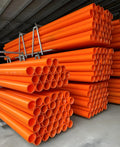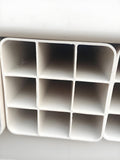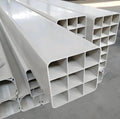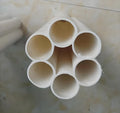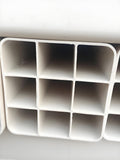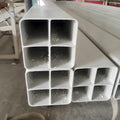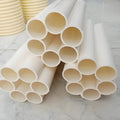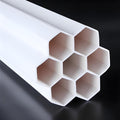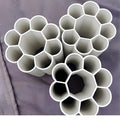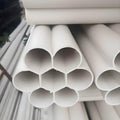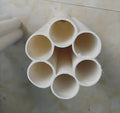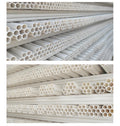Roll over or click image to zoom in
PVC sewer pipe is a durable and efficient solution designed for safe and reliable wastewater management in various applications, ensuring long-term performance and environmental sustainability. It is widely used in municipal sewage systems, residential and commercial building drainage, industrial wastewater treatment plants, and agricultural slurry disposal. In urban sewer networks, basement drainage setups, and industrial complexes, PVC sewer pipe effectively handles sewage, greywater, and corrosive industrial fluids by resisting chemical erosion, microbial growth, and scale formation, making it suitable for both underground and above-ground installations.
The key advantages of PVC sewer pipe stem from its robust polyvinyl chloride (PVC) material, which offers excellent resistance to acids, alkalis, and solvents—critical for enduring harsh wastewater conditions without degradation. Its lightweight design simplifies transportation and installation, reducing labor costs and allowing easy maneuvering in tight spaces or complex layouts. The pipe’s smooth inner surface minimizes friction, promoting efficient fluid flow and reducing the risk of debris accumulation or blockages. With high impact strength and weatherability, it can withstand ground settlement, temperature fluctuations, and mechanical stress without cracking or leaking. Additionally, PVC sewer pipe supports simple jointing methods like solvent welding or rubber-ring connections, ensuring secure and leak-proof seals. Cost-effective and compliant with international drainage standards, it provides a sustainable solution for wastewater disposal in urban, rural, and industrial environments, combining reliability with low maintenance requirements.



